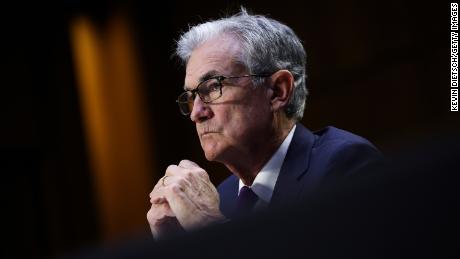The Fed said the new rules will ban policymakers and senior staff from buying individual stocks and bonds and will restrict active trading. The central bank pledged to also increase the frequency of reporting and public disclosures.
The new policy means senior Fed officials will be limited to buying vanilla investment vehicles such as mutual funds.
“These tough new rules raise the bar high in order to assure the public we serve that all of our senior officials maintain a single-minded focus on the public mission of the Federal Reserve,” Fed Chairman Jerome Powell said in a statement.
In an effort to “guard against even the appearance of any conflict of interest in the timing of investment decisions,” the Fed said policymakers and senior staff “generally” will be required to provide 45 days’ advance notice for purchases and sales of securities and get prior approval for purchases and sales of securities. They will also be required to hold investments for at least one year.
“No purchases or sales will be allowed during periods of heightened financial market stress,” the Fed said.
The Fed said the restrictions will apply to officials at regional Fed banks as well as the Fed’s Board of Governors. The policy will prohibit these officials from holding investments in individual bonds, entering derivatives or holding investments in agency securities.
New rules come as Biden debates keeping Powell
The policy comes as the Fed remains engulfed in a trading scandal. Last month, the heads of the Boston and Dallas Federal Reserve banks announced early retirements amid criticism of their trades. Boston Fed President Eric Rosengren cited health concerns.
The scandal threatens to block Powell’s shot at another four-year term running the Fed. Powell’s term expires in February and the White House has not said whether he will be renominated.
The announcement also comes just after Senator Elizabeth Warren called for the Fed to reveal a March 2020 ethics memo that could shed light on the Fed’s ethics scandal.
Warren’s office did not respond to a request for comment on the new Fed rules.
As part of the rule changes, regional bank presidents at the Fed will be required to publicly disclose financial transactions within 30 days. That would bring them in line with board members and senior staff.
The Fed said the restrictions will be incorporated “over the coming months.”
‘Failures of leadership’
Some of the Fed’s critics are unsatisfied.
“The changes announced today by the Federal Reserve are long overdue and a good start, but don’t go far enough,” Dennis Kelleher, CEO of financial reform nonprofit Better Markets, said in a statement.
Kelleher, who served on President Joe Biden’s agency review team during the transition, said the new rules should apply to anyone at the Fed who has possession of potentially market-moving information. And he called for senior Fed leaders, including the chair, to be required to put all of their investments into a qualified blind trust and be entirely banned from trading. Kelleher also said the Fed must still disclose all information and documents related to officials who traded during the pandemic.
“The new policies cannot be used to whitewash the prior bad judgment, failures of leadership and violation of the Fed’s own policies if not the law,” Kelleher said.






